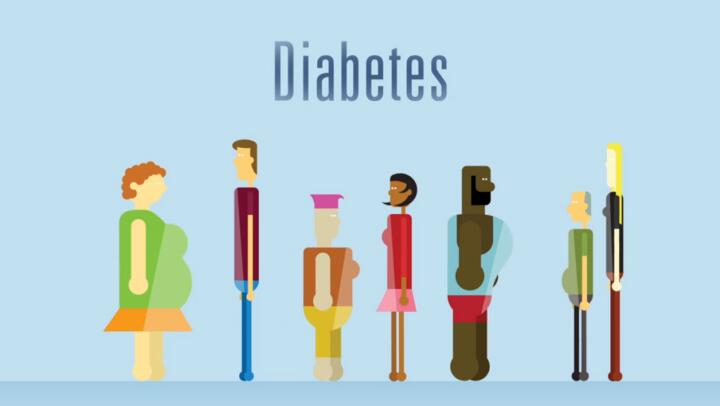What is metabolic syndrome?
Metabolic syndrome is a group of conditions that puts people at risk of heart disease, stroke, and type 2 diabetes. These conditions include excess belly fat, high blood sugar, high blood pressure, and cholesterol or triglyceride problems. Having any one of these problems increases your risk of health issues. Metabolic syndrome combines these conditions, which increases the risk even more.
Unfortunately, metabolic syndrome is common in the United States. It affects about 23% of adults and about 10% of teens. In fact, even young kids are at risk. What used to be conditions of middle- or older-age adults are now showing up earlier and earlier. The obesity epidemic in America is responsible for this trend.
Other names for metabolic syndrome include syndrome X, metabolic syndrome X, and dysmetabolic syndrome. All these names reflect the fact that something is wrong with your metabolic processes—the way your body uses energy and regulates body functions.
If you have a family history of these metabolic problems, your risk of developing metabolic syndrome is higher. However, lifestyle habits play a large role in metabolic syndrome. You can influence your risk by making healthy choices. Left untreated, metabolic syndrome can lead to serious health problems with potentially permanent complications.
What are the symptoms of metabolic syndrome?
The conditions that make up metabolic syndrome are typically silent, meaning you don’t have symptoms. The exception is high blood sugar, which can cause fatigue, increased thirst, increased urination, and blurred vision. But there are medical signs of metabolic syndrome. Signs are things other people can see or measure. Doctors use a metabolic syndrome definition consisting of signs to diagnose the disorder.
You must have three or more of the following criteria:
Abdominal obesity, which is a waist circumference of 40 inches or more for men and 35 inches or more for women
High blood pressure, which means 135/85 mmHg or higher for either the systolic (top) number or diastolic (bottom) number
High fasting blood sugar, which means 100 mg/dL or higher
High triglycerides, which means 150 mg/dL or higher
Low HDL (‘good’ cholesterol), which means less than 40 mg/dL for men and 50 mg/dL for women
Because you can’t really tell if you have these signs, it’s important to follow adult health screening recommendations. You need regular physical exams, blood pressure checks, and lab tests to monitor for problems. The earlier your doctor spots an issue, the sooner you can correct it and prevent complications.
What causes metabolic syndrome?
There is no single cause of metabolic syndrome. Instead, several factors work together to cause metabolic problems. The three main metabolic syndrome causes are overweight/obesity, inactivity, and insulin resistance. Insulin is a hormone your body needs to convert nutrients in food into energy your cells can use. Insulin resistance happens when your cells stop responding normally to insulin. This leads to high blood sugar levels because cells aren’t able to use the sugar for energy.
What are the risk factors for metabolic syndrome?
Researchers have identified several factors that increase the risk of developing metabolic syndrome. Keep in mind, not all people with risk factors will get metabolic syndrome. But knowing if you are at risk is important for your health. Risk factors for metabolic syndrome include:
Aging
Being Mexican American, followed by Caucasians and then African Americans
Carrying excess weight in your abdomen
Having a family or personal history of diabetes, heart disease, nonalcoholic fatty liver disease, or polycystic ovary syndrome
Living a sedentary lifestyle
Reducing your risk of metabolic syndrome
You may be able to lower your risk of metabolic syndrome by changing risk factors that are under your control. This includes:
Eating a heart-healthy diet. Include lots of fresh fruits and vegetables, whole grains, lean meats, and low-fat dairy products.
Getting regular physical activity. Start with 10-minute intervals of aerobic activity, such as walking, and increase gradually to 150 minutes per week.
Losing weight and maintaining a healthy body weight. Ask your doctor about your target calorie intake and BMI (body mass index).
Managing stress. Try relaxation therapy, meditation, massage, or another stress management technique.
Quitting smoking. Ask your doctor for help if you can’t kick the habit on your own.
You can significantly reduce the risk of heart disease, stroke, and type 2 diabetes by making these healthy lifestyle choices. If any of these changes seem overwhelming, talk with your doctor. There are programs and strategies to help you reach your goals.
How is metabolic syndrome treated?
Metabolic syndrome treatment focuses on lifestyle changes. They are the same changes that can help you reduce your risk of developing metabolic syndrome. They include addressing diet, activity, weight, stress and smoking.
If these changes are not enough, your doctor can also prescribe medicines to help manage blood pressure, blood sugar, and cholesterol and triglyceride levels.
What are the potential complications of metabolic syndrome?
The main complications of metabolic syndrome are the development of diabetes, heart disease, and stroke. Left unchecked, high blood sugar levels will eventually lead to full-blown diabetes. High blood pressure and cholesterol problems can lead to atherosclerosis, which is plaque buildup inside your arteries. This increases your risk of heart disease, heart attack, and stroke. You can protect yourself by discussing your risk with your doctor and taking steps toward a healthier lifestyle.






























